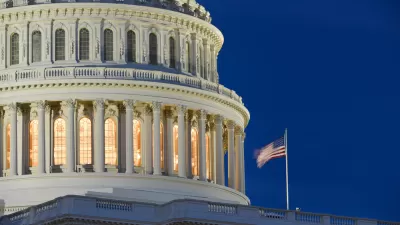While the HSR Authority hopes to get at least half of the $8 billion ARRA funding, it has yet to market any of the $10 billion in bonds passed by the voters because of its budget problems. Criticism abounds.
"The American Recovery and Reinvestment Act approved by Congress in February contains $8 billion to be doled out to states for development of high-speed rail service and passenger rail service among cities.
California wants half.
Mehdi Morshed, executive director of the California High-Speed Rail Authority and other California boosters are trying to make the case with federal transportation officials that when it comes to high-speed rail in the United States, the Golden State is king.
"All factors considered, we are at the top," Morshed said. "We are the only ones with a real high-speed rail project. Everyone else is just improving their current (conventional) rail service."
Yet the plan and the Authority has its critics.
"The only reason you wouldn't spend $2 billion or even $3 billion or more on California is if you had doubts about the state's commitment or ability to do the high-speed rail project," said Ross Capon, executive director of the National Association of Railroad Passengers. "California has the lowest bond ratings of any state and there are some doubts about its political leadership."
"The California authority has ignored the lessons of Florida and Texas, and has repeated all the mistakes," said Joseph Vranich, a former Amtrak official and former president of the High Speed Rail Association. "It hasn't produced a single number or report or prediction that is true."
For example, Vranich argues, California should be disqualified from receiving federal rail aid because its environmental impact statements are outdated and inaccurate."
FULL STORY: California's high-speed rail forces seek big slice of stimulus pie

Alabama: Trump Terminates Settlements for Black Communities Harmed By Raw Sewage
Trump deemed the landmark civil rights agreement “illegal DEI and environmental justice policy.”

Study: Maui’s Plan to Convert Vacation Rentals to Long-Term Housing Could Cause Nearly $1 Billion Economic Loss
The plan would reduce visitor accommodation by 25% resulting in 1,900 jobs lost.

Planetizen Federal Action Tracker
A weekly monitor of how Trump’s orders and actions are impacting planners and planning in America.

Waymo Gets Permission to Map SF’s Market Street
If allowed to operate on the traffic-restricted street, Waymo’s autonomous taxis would have a leg up over ride-hailing competitors — and counter the city’s efforts to grow bike and pedestrian on the thoroughfare.

Parklet Symposium Highlights the Success of Shared Spaces
Parklets got a boost during the Covid-19 pandemic, when the concept was translated to outdoor dining programs that offered restaurants a lifeline during the shutdown.

Federal Homelessness Agency Places Entire Staff on Leave
The U.S. Interagency Council on Homelessness is the only federal agency dedicated to preventing and ending homelessness.
Urban Design for Planners 1: Software Tools
This six-course series explores essential urban design concepts using open source software and equips planners with the tools they need to participate fully in the urban design process.
Planning for Universal Design
Learn the tools for implementing Universal Design in planning regulations.
Caltrans
Smith Gee Studio
Institute for Housing and Urban Development Studies (IHS)
City of Grandview
Harvard GSD Executive Education
Toledo-Lucas County Plan Commissions
Salt Lake City
NYU Wagner Graduate School of Public Service



























